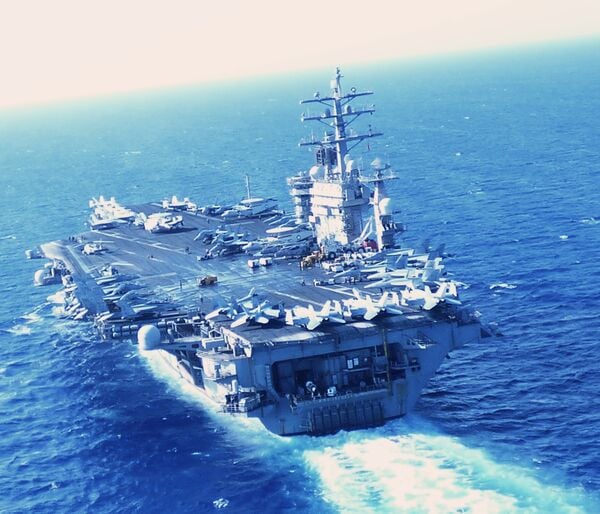
USS Dwight D Eisenhower and its carrier strike group ships have conducted naval combat operations in the Red Sea. (Janes/Michael Fabey)
Combat and security operations by US and partner naval forces in the Red Sea region have had an impact on Houthi operations, according to Vice Admiral George Wikoff, US Navy (USN) 5th Fleet commander.
“We have certainly degraded their ability, no doubt about that,” Vice Adm Wikoff said on 7 August during the Center for Strategic and International Studies (CSIS) Maritime Security Dialogue event, Preserving the Free Flow of Commerce in the Red Sea and Beyond.
“Our mission remains to disrupt their ability,” said Vice Adm Wikoff, who is also commander of US Naval Forces Central Command (NAVCENT).
He acknowledged a rapid drop in maritime shipping in the region starting in October when Houthis began their attacks in earnest and shipping companies began to recalibrate and reroute their transits to avoid the region.
Now though, there has been a “stabilisation” in the region, he said, adding, “It's an unacceptable degree of stabilisation, but we have some degree of stabilisation.”
The job of the USN and coalition naval forces in the region is to “retain that decision space and preserve where we are now,” he added.
Vice Adm Wikoff noted the “incredible work by our surface warfare enterprise continue to force generate and to sustain our ships at sea”.
The forces have launched batteries of offensive and defensive weapons, such as Standard Missiles (SMs), including SM-2s, SM-3s, and SM-6s, for the most naval combat the US has seen since the Second World War.
USS Dwight D Eisenhower's
Looking to read the full article?
Gain unlimited access to Janes news and more...







